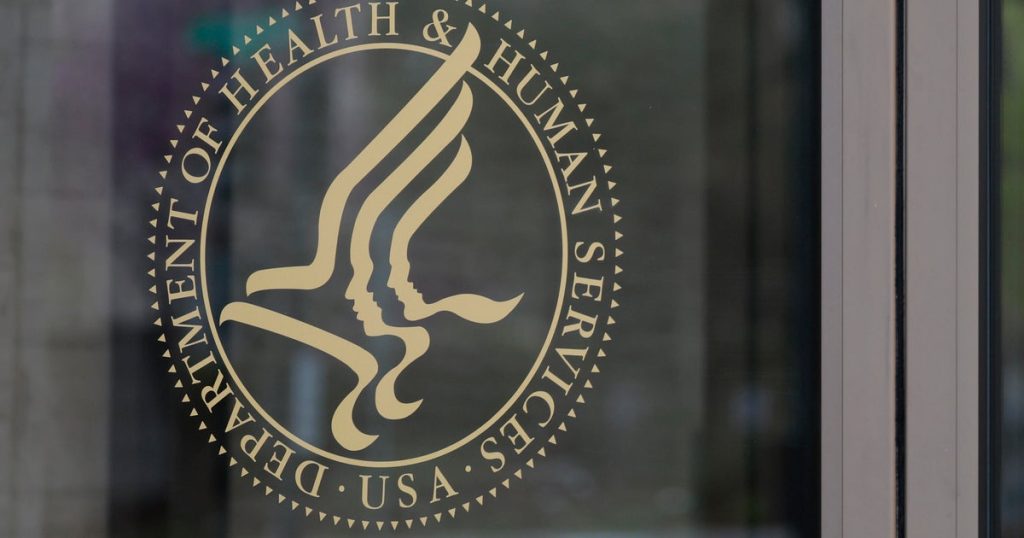In a surprising development, the Department of Health and Human Services (HHS) has refuted claims regarding the establishment of an autism registry. This clarification follows an announcement by the National Institutes of Health (NIH) Director, who discussed plans to collect expansive health data to investigate the causes of autism. Officials have indicated that instead of a registry, a real-world data platform will be created to link existing datasets aimed at improving autism research and treatment strategies.
| Article Subheadings |
|---|
| 1) Clarification on Autism Registry Plans |
| 2) NIH’s Initial Proposal and Its Reception |
| 3) Financial Commitment to Autism Research |
| 4) Data Security and Compliance reassurances |
| 5) Conclusion and Future Implications |
Clarification on Autism Registry Plans
An official from the Department of Health and Human Services confirmed on Friday that there are no plans to establish an autism registry, countering previous declarations made by the NIH director, Dr. Jay Bhattacharya. In a communication with news outlets, the official clarified, “We are not creating an autism registry. The real-world data platform will link existing datasets to support research into causes of autism and insights into improved treatment strategies.” This clarification comes amid concerns voiced by the public regarding privacy and the potential misuse of data.
NIH’s Initial Proposal and Its Reception
During a prior presentation, Dr. Bhattacharya had mentioned ambitions to create “national disease registries,” including one dedicated specifically to autism. This proposal, integrated into a broader data analysis platform, was aimed at studying autism alongside other chronic diseases. The announcement, however, drew significant backlash from advocacy groups and autism researchers, who criticized the potential implications for patient privacy. Amid increasing scrutiny, clinicians reported being overwhelmed with requests to erase sensitive patient data and cancel appointments, indicating widespread concerns around the collection of personal health information.
Financial Commitment to Autism Research
The HHS has pledged a notable investment of approximately $50 million to support autism research initiatives. This funding is intended to facilitate the analysis of data concerning autism spectrum disorder (ASD) and improve treatment methodologies through comprehensive research partnerships. According to the official, the focus will remain on leveraging large-scale data resources while fostering cross-sector collaboration, further emphasizing the intent to prioritize patient privacy and data security.
Data Security and Compliance Reassurances
In a statement regarding the research initiative, the NIH emphasized that its secure data repository will analyze large volumes of de-identified health data pertaining to autism and chronic diseases. The agency reassured the public that compliance with federal privacy laws and regulations will be of utmost importance, asserting that “these efforts are not about tracking individuals.” Furthermore, the NIH reiterated its commitment to maintaining the highest standards of security and privacy standards to protect personal health information.
Conclusion and Future Implications
These recent developments mark a pivotal moment in the ongoing discourse surrounding autism research in the United States. The various statements and clarifications highlight the delicate balance that federal agencies must navigate between advancing scientific understanding and safeguarding patient confidentiality. As the situation evolves, further updates from both HHS and NIH are anticipated, particularly regarding funding timelines and specific research outcomes.
| No. | Key Points |
|---|---|
| 1 | The HHS officially denied claims regarding the creation of an autism registry. |
| 2 | NIH’s Director had proposed the idea but faced significant backlash from advocacy groups. |
| 3 | A $50 million funding commitment has been made to support autism research initiatives. |
| 4 | NIH emphasizes security and compliance with federal privacy laws regarding data management. |
| 5 | Future updates on funding timelines and research developments are expected from HHS and NIH. |
Summary
The ongoing dialogue surrounding autism research in the U.S. has taken a significant turn with the HHS denying the existence of an autism registry. This situation underscores the complexities of managing public health initiatives while addressing privacy concerns. The NIH’s commitment to exploring autism through a comprehensive data approach, while assuring stringent privacy measures, reflects an adaptive response to stakeholder pressures and expectations.
Frequently Asked Questions
Question: What is the autism registry controversy about?
The controversy revolves around initial statements from the NIH Director indicating plans for an autism registry and subsequent clarifications from HHS denying such plans, focusing instead on a real-world data platform.
Question: How much funding is allocated for autism research?
The HHS has allocated a $50 million investment to support various autism research initiatives aimed at understanding and treating autism spectrum disorder.
Question: What measures are being taken to ensure data privacy?
The NIH has emphasized that all data collected will adhere to federal privacy laws and will be de-identified to protect personal health information, prioritizing data security.


